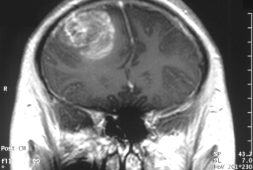Can Alzheimer’s Risk Be Stopped With The Help Of Erectile Dysfunction Drugs? Get Experts’ Take On It

Researchers are looking into drugs such as Viagra and Cialis. They want to see if these meds are able to promote brain health and stave off the possibility of developing dementia. Three experts talk about how they were looking for answers and how further research is required in order for them to see if the true benefit of PDE5 inhibitors when it comes to brain health.
In the past year, several research studies showed that men who used these meds for erectile dysfunction were had actually lower chances of developing dementia. The findings gave both the medical community and the public hope because at this point in time, there is no approved medication available that is able to prevent dementia such as Alzheimer’s disease from striking people.
A study that was published in December 2021 and one that was supported by the National Institute of Aging saw how men who took sildenafil (Viagra) had significantly lower chances of developing Alzheimer’s disease. A separate research published at the beginning of 2022 also saw that tadalafil (Cialis) may also be able to increase blood flow in the white matter of the brain connected to vascular dementia.
Researchers are currently under the assumption that the onset of Alzheimer’s and other forms of dementia is connected to a chronic lack of blood flow in the recesses of the brain. For the drugs, Viagra and Cialis are phosphodiesterase-5 (PDE5) inhibitors designed to aid in erectile dysfunction (ED). It does so by increasing blood flowing to the shaft. Because these drugs are able to enhance blood flow, some scientists hypothesized that these could also enhance or improve blood circulation in the brain, and thus, protecting them from dementia.
However, the latest research may inject some doubt on whether or not this class of drugs can really lower the risk. Results from a National Institutes of Health study in October 2022 saw that sildenafil (Viagra) and tadalafil (Cialis) may not actually be helpful.
Below are three dementia researchers. They will explain the science behind it all. Rishi Desai, PhD is an assistant professor of medicine at Harvard Medical School and an associate epidemiologist at Brigham and Women’s Hospital. Then there’s Feixiong Cheng, PhD. He is a researcher at Cleveland Clinic’s Lerner Research Institute. Lastly, there Percy Griffin, PhD. He is the director of scientific engagement with the Alzheimer’s Association.
The study was led by Dr. Desai. He found no evidence regarding the use of Viagra and Cialis and how these lowered the risk. As for Dr. Cheng, he led the study that saw how Viagra may have reduced risk.
The following are the answers to the questions on the topic.
How do you explain the conflicting results between these two studies?
Desai: “The first study compared those who took Viagra for any reason to those who did not take it or took medications for other indications, including diabetes and hypertension. That design likely resulted in a comparison of individuals with erectile dysfunction (the most common indication for Viagra) to generally older individuals with diabetes or hypertension, both of which are risk factors for dementia.
It is plausible to hypothesize that older men who initiate Viagra for ED are likely to have some level of activity and overall better general health compared with those who do not. … One of the factors explaining lower risk of dementia with Viagra in the earlier study could be the characteristics of the patients who took the medication and not the medication itself.”
“In contrast, our study included only those with pulmonary arterial hypertension (PAH), which is also an indication for medications like Viagra and Cialis. We compared dementia incidence in those who took these drugs to the incidence among people who took a different medication to treat their PAH, which likely resulted in a comparison of more similar patients.”
Cheng: “There are several possible reasons to explain the conflicting results. The Desai study … was a much smaller group of people — as pulmonary hypertension is a rare disease with limited patient sample size.”
“Pulmonary hypertension has very poor outcomes, with about three years of survival based on published literature data. Yet Alzheimer’s disease is a chronic disease, with 15 to 20 years of development process. The authors of the later study cannot see prevention effects during this short follow-up time of about three years.”
“In addition, the dose of Viagra prescribed for pulmonary hypertension is much lower than the dose given for ED that we tested in our paper.”
Why are researchers interested in repurposing drugs like this for other therapeutic purposes?
Griffin: “More than ever before, Alzheimer’s researchers understand that a variety of approaches will be needed — most likely used in combination, as we do in heart disease — for effective treatment of the disease.”
“Looking for possible additional therapeutic uses of drugs already available on the market, known as drug repurposing, is a strategy that is currently being used for drug discovery for Alzheimer’s and other dementias, and it has been successfully used in many other diseases.”
Cheng: “We don’t have U.S. Food and Drug Administration (FDA)–approved, highly effective … drugs for Alzheimer’s disease, and the failure rate of Alzheimer’s clinical trials is over 99 percent. Re-purposable drugs have been approved by the FDA for other indications, with well-known safety profiles. Drug repurposing can significantly reduce the timeline and cost of drug development for Alzheimer’s disease and other challenging diseases if broadly applied.”
Should researchers keep looking into Viagra and Cialis for dementia prevention? What further study is needed?
Cheng: “The clinical benefit of Viagra in Alzheimer’s disease must be further tested using other patient data or even future clinical trial studies. Our study and other published preclinical studies only showed that Viagra is a possible treatment for Alzheimer’s disease.”
Desai: “More research in diverse populations with larger samples of patients would be helpful but should be designed with sound principles to rule out as many alternative explanations as possible. The biology behind these drugs is certainly interesting — however, so far there has not been a convincing study involving human participants demonstrating the beneficial effect.”
Griffin: “It’s important to understand that these studies are simply association studies based on a review of health insurance claims data, and we have no clinical trial data demonstrating the effectiveness of Viagra as a treatment for Alzheimer’s.”
What is the overall takeaway for people concerned about their dementia risk?
Griffin: “Even though it’s not a clinical trial, research like this can be very valuable. It’s a first step in looking for possible clues that a known treatment may be appropriate for use in another disease. We’ve seen some other data that suggests Viagra treatment is associated with increased neurogenesis (brain cell generation) and decreased inflammation, but more research is needed. That said, it will be important to conduct rigorous clinical trials to determine both the safety and effectiveness of the treatment approach.”
“While you should absolutely be talking to your doctor about aging and cognition/memory, it would not be appropriate to ask your doctor for this drug as an Alzheimer’s treatment or prevention, as it has not been tested for this purpose. If you are taking this drug under doctor’s supervision, or have access to it, do not take it as an Alzheimer’s treatment or prevention.”



